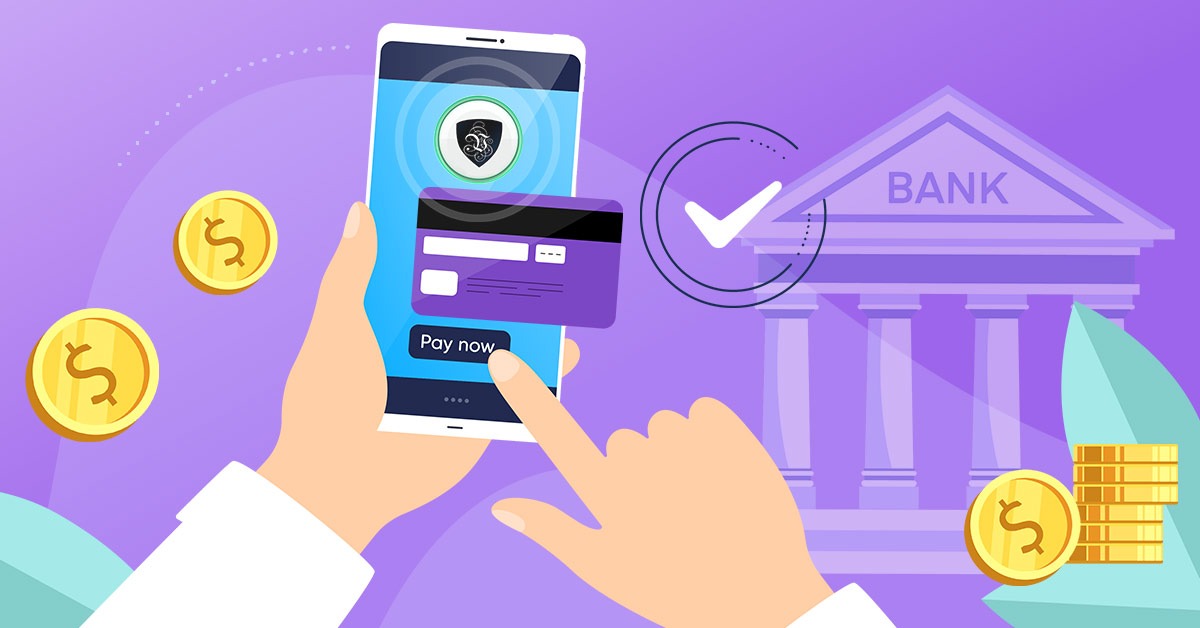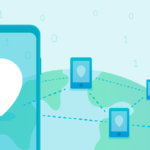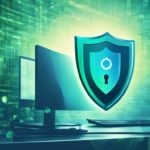is a free VPN safe for online banking? Yes, it is safe to use a VPN for online banking, but a free one probably won’t help you with safe online banking. Online banking has become incredibly convenient and easy to use in recent years. With just a few clicks on your computer or taps on your smartphone, you can check account balances, pay bills, transfer money between accounts, and more. However, this convenience also comes with risks, as banking online means your financial information is being transmitted over the Internet. Using a VPN can help keep your online banking activity more secure, but is a free VPN safe enough for such sensitive tasks?
What is a VPN and Why it is Important for Online Banking?
A virtual private network, or VPN, is a service that creates a private network from a public internet connection. VPNs encrypt your internet traffic and route it through a secure tunnel to the VPN server. This prevents hackers from seeing what you’re doing online, including logging into your bank account or making online purchases. VPNs also hide your real IP address, making it harder for cybercriminals to locate you.
When you use a VPN, your traffic exits through the VPN server rather than your own network. This prevents your internet service provider from logging and selling your browsing data. It also allows you to bypass geo-restrictions and access content only available in certain countries.
Using a VPN provides an important extra layer of security when banking and shopping online:
- Encryption – VPNs use advanced encryption protocols to scramble your data as it travels over the web. This prevents hackers from accessing sensitive information like passwords or account numbers if they were to intercept traffic coming from your device.
- Anonymity – By hiding your IP address, VPNs allow you to bank online without giving away your actual location or identity. This makes it much harder for fraudsters to target you.
- Public WiFi protection – Connecting to public hotspots is very risky for banking, as it’s easy for hackers to snoop on traffic over unsecured networks. A VPN secures your connection even on public WiFi.
- Geospoofing – Some banks restrict access based on location. With a VPN you can spoof your location and securely access your accounts even while traveling abroad.
Are Free VPNs Safe for Online Banking?
While paid VPN services from reputable providers offer solid security for banking and other sensitive tasks, free VPNs, unfortunately, come with some big risks that make them unsafe for protecting your financial information:
- Lack of encryption – To cut costs, many free VPNs use weak or outdated encryption that is easier for hackers to crack. This leaves your banking info vulnerable.
- No logging policy – Paid VPNs typically have comprehensive no-logging policies to protect user data. Free VPNs often log activity and some even sell this data, jeopardizing privacy.
- Bandwidth limits – Free VPNs impose strict data caps which can interrupt your banking sessions. Paid VPNs generally offer unlimited bandwidth.
- Server limitations – Free VPNs have a smaller number of servers, which can mean slower speeds. This can cause timeouts when banking and impact usability.
- Malware risks – To monetize their free service, some free VPNs install malware. This can seriously endanger financial data.
- Questionable jurisdiction – Many free VPNs are based in countries with lax cybersecurity laws, making legal recourse difficult if your data is compromised.
Tips for Safe Online Banking
If you don’t want to purchase a paid VPN, here are some tips to enhance security when banking online:
- Only access banking sites via HTTPS using SSL/TLS encryption. Avoid HTTP.
- Never use public WiFi for banking sessions – only trusted home networks.
- Use a dedicated device for banking that is not used for general web surfing or email access.
- Use a modern browser like Chrome or Firefox with security extensions enabled.
- Enable two-factor authentication on all financial accounts for an added security layer.
- Monitor accounts frequently for suspicious transactions and report any unauthorized activity immediately.
- Be wary of phishing scams – check the URL is your bank’s legitimate domain before logging in.
Paid VPN Recommendations
If you want robust protection for banking and other sensitive online activity, a premium VPN is highly recommended over any free options. Some top paid services include:
- NordVPN – Based in Panama, outside surveillance alliances. Strict no logs policy, uses latest encryption, and over 5000 servers worldwide. Fast speeds for secure banking.
- ExpressVPN – Has excellent privacy protections and policy against keeping logs. Lightning fast speeds and ultra-reliable connections. Over 3000 servers in 94 countries.
- CyberGhost – Has great security features like a kill switch to stop traffic if VPN drops. No logs policy. User-friendly apps make it easy to stay secure when banking.
- Private Internet Access – Has no activity or connection logs and is based in the US. High-level encryption protects banking data and connections are very fast.
- Surfshark – Boasts an entire online security suite. Has a camouflage mode to hide VPN usage from your ISP. Extremely fast speeds globally with many server options.
Conclusion
While using any VPN will provide more security for online banking compared to no VPN, free VPN services come with too many risks to recommend relying on them for protecting sensitive financial transactions. For robust encryption, guaranteed privacy, and reliable connections, a paid VPN from a top provider is your safest bet for banking securely online. The modest subscription fee is worth it for the peace of mind that your banking data stays protected.








